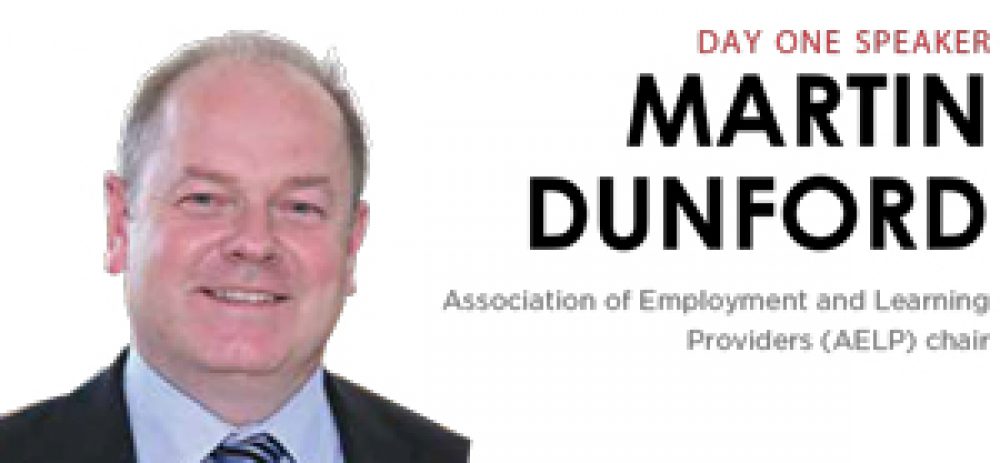The people have voted, the government has been formed and now the policies must be enacted. Martin Dunford outlines how the skills sector should respond to the challenges ahead, and how sector funding must also be looked at.
The AELP national conference is the first opportunity we have had to debate the plans that the new government has for employment and skills programmes.
Whatever your own political views, the result of the General Election means that we have some clear understanding of what is coming in policy terms and even the same Skills Minister in Nick Boles.
Our preference is for early confirmation of key policies and the changes that they will entail, and then hope for a period of real stability in terms of policymaking.
The reappointment of Mr Boles is very encouraging because, as City & Guild’s ‘Sense and Instability’ report last year showed, responsibility for skills has been bedevilled by numerous machinery of government changes and an endless succession of ministers. Nevertheless, announcements in the last couple of weeks around budgets and programme growth show the focus on government spending will mean that overall budget levels for employment and skills will be under constant pressure over the next five years.
Many of the key proposals AELP made in our own manifesto are reflected in this government’s plans but as always the devil is in the detail and it is how these issues are implemented that will be the key factor on whether these policies will be successful. It is important that the organisations delivering these programmes are involved in the policy development and definitely the implementation of those policies.
The ten points in the AELP manifesto still remain our key drivers and the highest profile policy push has been the drive to increase the numbers of apprenticeship starts. Employment and skills were also very high profile in the election campaign and they were one of the first things the Prime Minister listed in his acceptance speech and at the first Cabinet meeting. These policy areas have arguably never had such a high profile and it’s the efforts of providers and employers that have got them to the top of the agenda. We know that apprenticeships will be at the core of the challenge for us but providers will also be involved in the delivery of full employment and the new approach to getting young people into work.
The challenge has been underlined by recent announcements about £900m cuts from next year’s budgets and deferral of growth proposals. But if we are to be at the centre of these policies’ implementation, then we have to be positive and constructive about what we need to deliver for employers and individuals. There is now an understanding that spending on employment and skills is an investment and not a cost to individuals, employers and the UK economy but we know that investment will be under huge scrutiny. We know there will continue to be a drive to deliver more for less but we need stability of policy, longer term contract commitments and more realistic funding to be able to take that longer term view and develop plans that build confidence in our sector.
Contract reform means addressing the Skills Funding Agency’s guidance that providers over-deliver at their own risk, ie they won’t necessarily get funded for any additional delivery. To achieve 3m apprenticeships, more delivery has to be encouraged by providers with a proven track record.
We have a real opportunity to build on the growing confidence employers and learners have in vocational pathways. Young people and their parents are now considering different routes to high level skills.
We have to build on this change and working with government, we can together continuously improve delivery, outcomes and penetration of the employer market.









Your thoughts